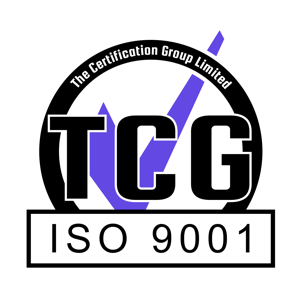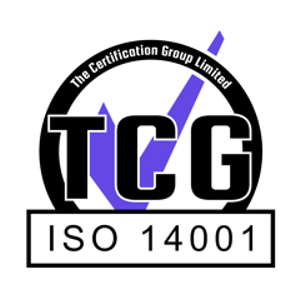Planet-friendly Recycled pots
We have always been very keen to help protect the environment and have always focused on reducing waste, saving energy, reusing and recycling. In addition, as part of our ISO 14001 (Environmental Management Systems) certification, we are constantly aiming for continuous improvement.
The pots that we used have always been fully recyclable but it has been a bug bear to us that they used virgin PET, so we embarked on a search for a better solution that has less impact on the environment but which was available in the sizes and quantities that we are logistically suited to deal with. After much research, we are happy to announce that we’ve decided that planet-friendly rPET, which is made from over 99% Post Consumer Recycled (PCR) plastic is currently the most environmental way forward for us.
Designed for recycling, made from recycling!
With over 77% of PET bottles and pots currently being recycled, PET is the most recycled of all the plastics, and with changes in technology PET can now be recycled many more times than it used to be.
We always encourage the repurposing pots if you can, but we now feel much more confident that when you recycle, the loop can be continuous, having a much lower carbon footprint and therefore less environmental impact than all of the currently available alternative packaging materials.
What is rPET?
rPET is post consumer recycled PET (polyethylene terephthalate) which has long been used to package foodstuffs.
rPET is very sustainable as it can be 100% completely recycled, giving it a lower carbon footprint than virgin PET. It takes less energy to produce (around a quarter of that of virgin PET) and, because it is lighter, costs less to transport, having both an economic and environmental impact.
rPET remains recyclable many times, so when you recycle your used pots it means they will not be thrown to landfill or left to wash around our oceans. This has a massive positive impact on reducing pollution as, by becoming post consumer waste, it becomes a reusable commodity that helps companies like Veganicity to meet their social, environmental and sustainability goals.
Why is the pot not 100% recycled?
All of our rPET pots contain 99.6% post consumer recycled plastic together with 0.4% colouring to keep our pots their dark green colour. This helps protect the product inside from UV light, making sure you get the best quality supplement you can. You could argue that the pot is made from 100% recycled PET, but we like to be totally honest.
Isn’t glass more environmentally friendly?
Unfortunately, no. As well as being significantly heavier (rPET is only about 15% the weight of a similar sized glass jar) and so more environmentally damaging to transport, the manufacture of glass also has a major detrimental impact on the planet.
New glass is made from four non-renewable main ingredients: sand, soda ash, limestone and other additives for colour or special treatments. Although there is no shortage of these raw materials as yet, they all have to be quarried, using up natural resources and energy for extraction and processing. The production and recycling of glass uses huge amounts of energy, needing temperatures of 1000 °C or more, as opposed to the relatively lower temperatures of only 260 °C for PET, making the recycling of both PET and rPET considerably less energy hungry.
What about aluminium or paper?
From the research we’ve done, paper isn’t yet at the point where it can be used as an effective alternative for packaging supplements. It still needs to be lined with something, and this something is usually plastic. Unfortunately, this means that the packaging usually becomes less easy to recycle than a simple rPET pot, as more work has to be done to split the component parts.
Compared to most metals, aluminium is extremely difficult to extract from its ore (bauxite). It takes at least 4 tonnes of non-renewable bauxite to produce 1 tonne of aluminium. This causes a lot of land degradation, uses a lot of energy and at the same time releases harmful greenhouse gases into the atmosphere.
On a like for like size basis rPET uses less than half the amount of greenhouse gases to produce than aluminium, with aluminium needing to be heated to at least 750 °C for both original production or recycling. Aluminium is infinitely recyclable, though, in what is known as a closed loop recycling process, but has a detrimental effect on carbon footprint, due to the high amounts of energy needed.
rPET and Aluminium are very comparable weight wise, so over glass we see a much reduced transport impact using aluminium, but they can dent very easily making the product look undesirable to the consumer.
Where next?
We will continue to follow the research into new possibilities for environmentally friendly packaging materials and are excited to see what becomes available over the coming years. But, until then, in our opinion, rPET is the most environmentally friendly solution we currently have.



